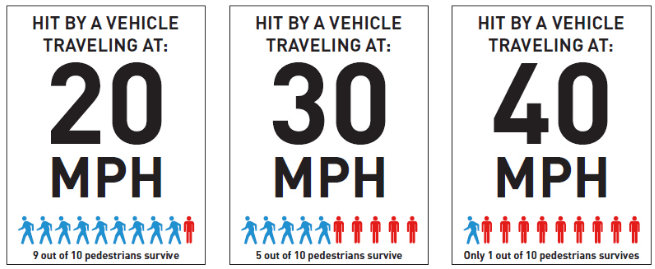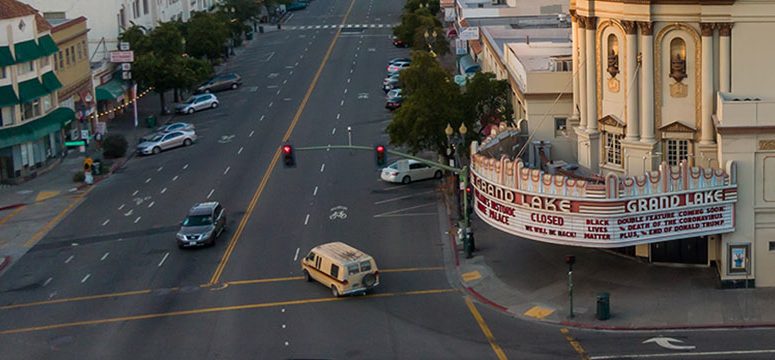Note: GJEL Accident Attorneys regularly sponsors coverage on Streetsblog San Francisco and Streetsblog California. Unless noted in the story, GJEL Accident Attorneys is not consulted for the content or editorial direction of the sponsored content.
Earlier this year, California set up a task force to discuss the way California sets speed limits and recommend potential changes, but safety advocates are worried that its findings and recommendations won't go far enough. WalkSF is urging people who are concerned about safe streets to weigh in.
Convened in response to A.B. 2363 from Assemblymember Laura Friedman, the Zero Fatalities Task Force has been meeting since June. It includes city planners, state agency staff, local elected leaders, AAA, CHP, and at least one gadfly, 25 members in all. But its meetings have been closed to outside observers, and information released about its deliberations has been limited.
So far. In a few weeks, the California State Transportation Agency (CalSTA) will release a draft of its recommendations. The report, based on what was learned and discussed in the course of the workshops--including university research on speed limits, speed as a factor in crashes, and related topics--is due to the legislature by January 1.
WalkSF did not have a representative on the 25-member task force, but participated in a larger "advisory group." Advocates there are worried that the report's conclusions might not be strong enough, and they're asking for help from the public.
WalkSF is urging the public to email state leaders and members of the task force to ask them to recommend that cities be allowed to set speed limits that make sense for their communities. Current state rules require cities to set speed limits based on prevailing speeds, rather than safety, and the result has been a steady rise in speed limits and safety risks, especially for people on foot and on bike.
The notion of changing the rule has run up against strong opposition, notably from law enforcement and AAA, and their representatives and apologists are very likely to argue for the status quo - even in the comments below. At various times opponents have argued: that enforcement has no effect on speeds; that allowing locals to set speed limits will lead to speed traps; even that speed is not a "primary factor" in many crashes. What's clear is that some opponents are just not willing to discuss possible solutions.
So the task force's aim has been to air concerns and find a way forward, even with the potential for its discussions to be sidelined by knee-jerk opposition. That's what WalkSF and its allies fear: that safety concerns, and research results, will be drowned out.
CalSTA has set up a website, here, with background information and highlights from some of the research presented at the workshops. Within those presentations, there is one hint at the upcoming report's contents. Advisory group members who answered a survey said that a top priority for the state should be a "revision to speed-limit-setting process/local authority for context-sensitive speed control."
Stay tuned for more when the report comes out. Meanwhile, here's a video put together by UC Berkeley's SafeTREC with a quick rundown of the issues at hand.






